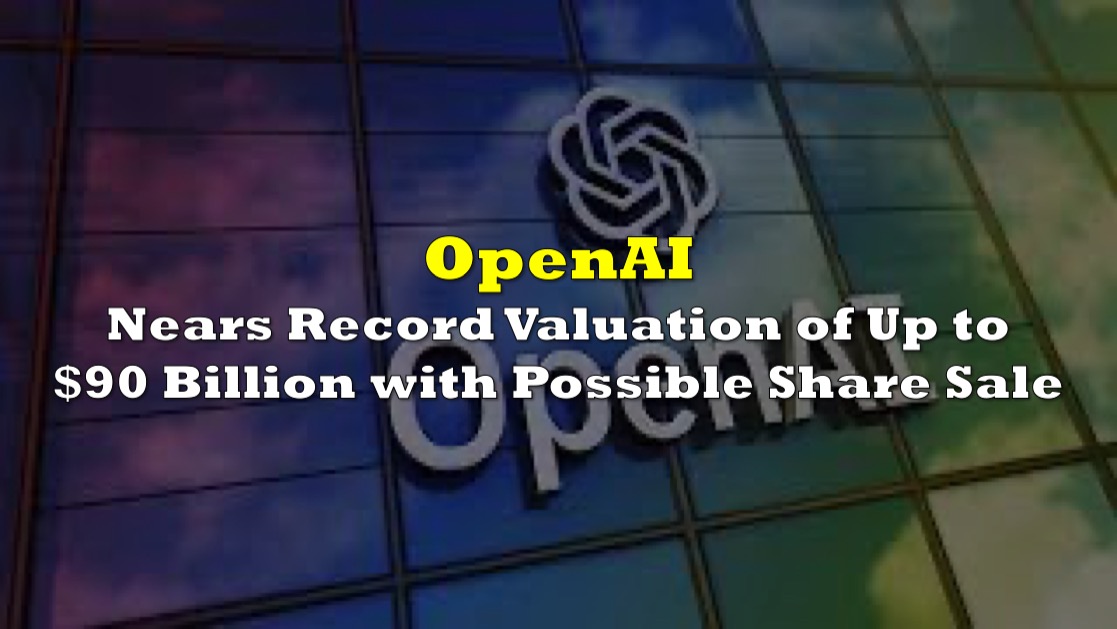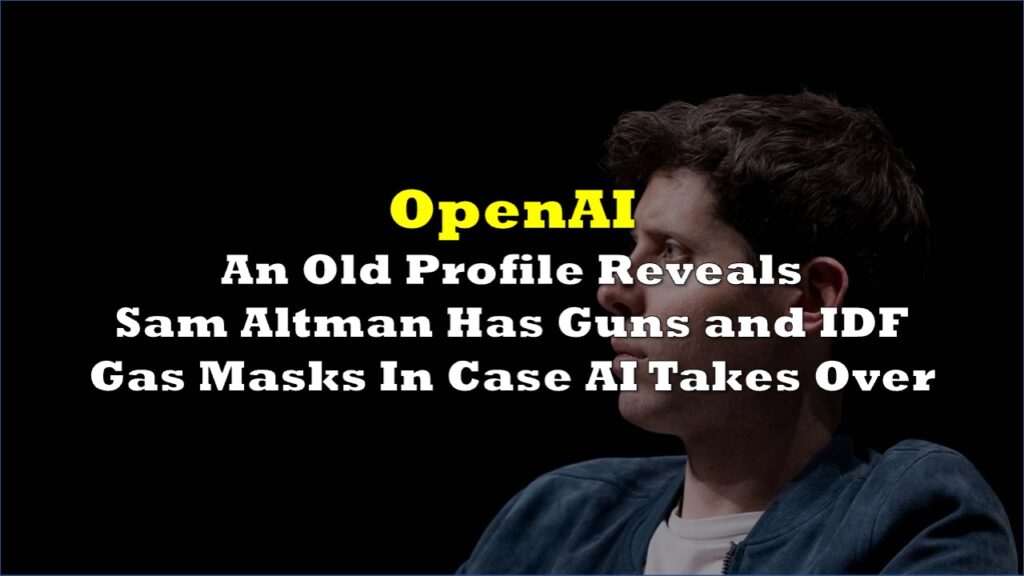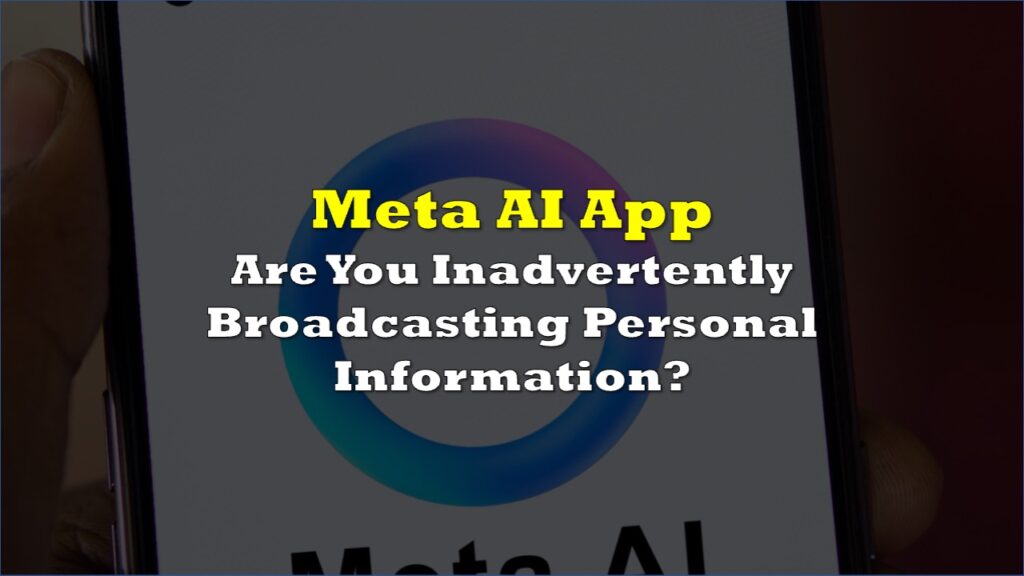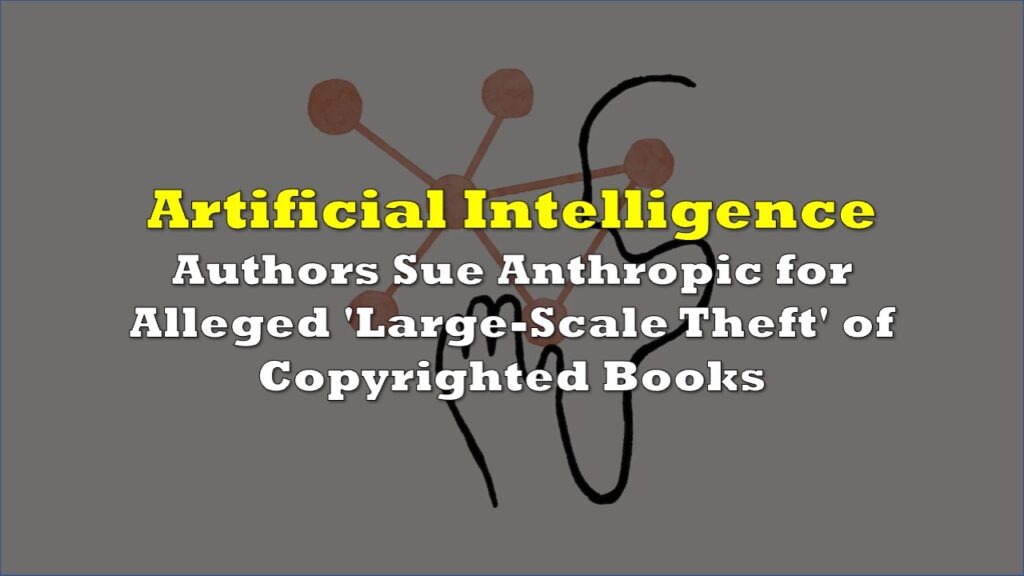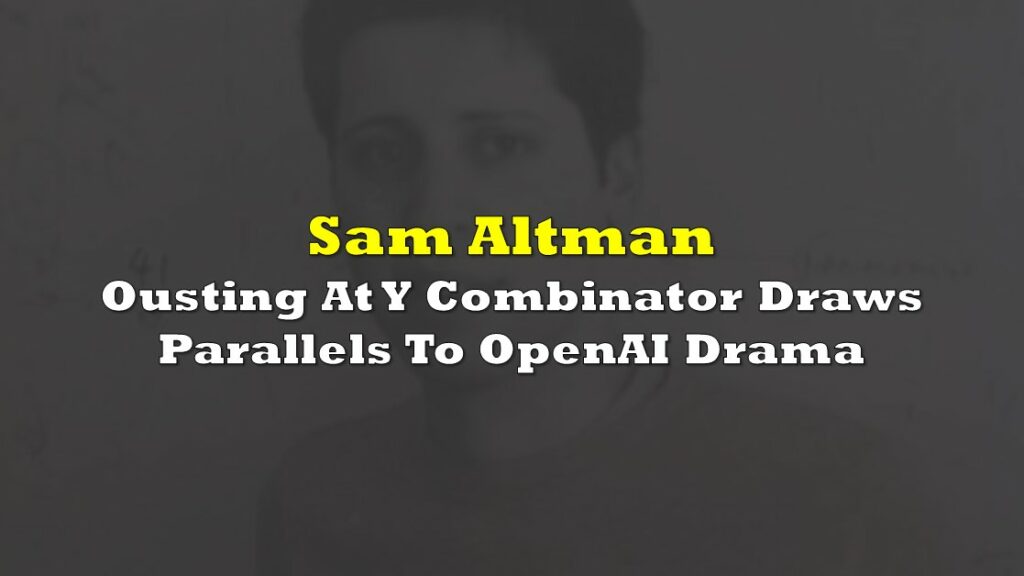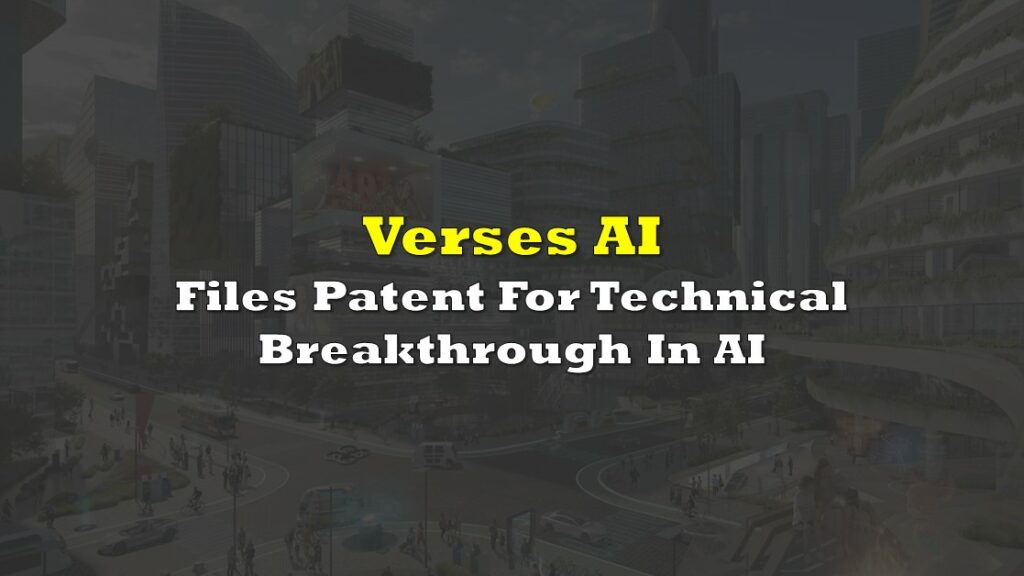OpenAI, the artificial intelligence startup responsible for ChatGPT, is currently in discussions with potential investors regarding a share sale that could value the company at an astonishing $80 billion to $90 billion. This remarkable valuation represents a threefold increase from its earlier valuation earlier this year.
Microsoft, holding a substantial 49% ownership stake in OpenAI, is closely involved in these negotiations. Sources familiar with the discussions have revealed that OpenAI has conveyed its expectations of achieving $1 billion in revenue for the current year, with the promise of generating multibillion-dollar revenues by 2024.
Judging by the trading of AltC Acquisition below its NAV, the Oklo merger is likely to suffer significant redemptions and therefore not satisfy its $250 million cash closing condition
— Julian Klymochko (@JulianKlymochko) September 26, 2023
It would make sense to take @OpenAI public through the $ALCC, @sama
Disclosure: Long
Remarkably, this deal will not involve the issuance of new shares to raise additional capital. Instead, it will enable OpenAI employees to sell their existing shares. OpenAI representatives have already initiated discussions with potential investors, although the specific terms of the deal remain subject to change.
OpenAI made waves in Silicon Valley when it unleashed ChatGPT in November, setting off a fervor in the artificial intelligence landscape. While the basic version of ChatGPT remains free, OpenAI has generated revenue by offering individuals access to a more potent iteration of ChatGPT and licensing its extensive language models to businesses.
Should the valuation reach $80 billion or higher, OpenAI would rank among the world’s most highly valued startups, trailing only SpaceX and ByteDance, the owner of TikTok. This valuation underscores OpenAI’s profound impact on Silicon Valley, compelling even well-established tech giants to reevaluate their product strategies in light of OpenAI’s leadership.
Google, a pioneer in AI technology that influenced ChatGPT’s development, is actively preparing Gemini, a versatile AI program set to rival OpenAI’s GPT-4, its most advanced language model. Similarly, Meta is working on an open-source model with comparable capabilities, with its leadership increasingly immersed in the intensifying AI competition.
OpenAI aims to sell several hundred million dollars’ worth of existing shares to Silicon Valley investors, with previous transactions involving venture firms like Sequoia Capital and Khosla Ventures participating in tender offers. Microsoft stands to gain a substantial paper profit from this transaction, having invested billions of dollars in OpenAI when it was valued at just under $30 billion in January.
Under the leadership of CEO Sam Altman, OpenAI only began experiencing substantial revenue growth after ChatGPT’s release in November. This rapid ascent reflects the eagerness with which companies are embracing generative AI products.
According to a recent report from Analytics India Magazine, concerns are mounting about the company’s financial viability, with predictions suggesting that OpenAI might declare bankruptcy by the end of 2024.
This employee share sale could serve as a benchmark for potential future fundraising efforts with external investors. OpenAI is widely anticipated to raise additional capital by issuing new shares to cover the escalating computing costs associated with developing and maintaining its AI systems.
Notably, Altman is fielding significant interest from major investment players like Masayoshi Son’s SoftBank, indicating potential capital-raising endeavors separate from the ongoing tender offer process.
Established in 2015 as a research-oriented nonprofit with backing from Elon Musk and other investors, OpenAI initially focused on safe AI technology development. In 2019, it transitioned to a “capped profit” structure to accommodate the substantial investments required for computing power and recruiting top AI talent from tech giants like Google’s Alphabet.
However, this shift triggered controversy, as some safety researchers at OpenAI were concerned that profit would take precedence over the safe advancement of technology. This dissent led to the formation of a rival lab called Anthropic, which recently secured an investment of up to $4 billion from Amazon.com.
Over the past year, Altman has emerged as a prominent voice in the global conversation surrounding AI regulation. He shares the aspiration with many tech leaders to develop artificial general intelligence (AGI), a system capable of matching human intelligence and reasoning.
During a congressional hearing in May, Altman urged Congress to establish licensing and safety standards for advanced AI systems, a stance that garnered criticism from fellow entrepreneurs who argued that such standards would benefit incumbents like OpenAI.
Altman has asserted that OpenAI has no plans to go public or sell itself, underscoring the significance of these periodic sales of existing shares as a means for employees to capitalize on their stock holdings.
OpenAI is resolute in maintaining Microsoft’s minority stake in the company, ensuring that the tech giant cannot acquire shares that would elevate its ownership stake beyond 50%. This commitment reflects OpenAI’s strategic vision as it continues to chart the course of AI innovation.
Information for this story was found via The Wall Street Journal and the sources and companies mentioned. The author has no securities or affiliations related to the organizations discussed. Not a recommendation to buy or sell. Always do additional research and consult a professional before purchasing a security. The author holds no licenses.

